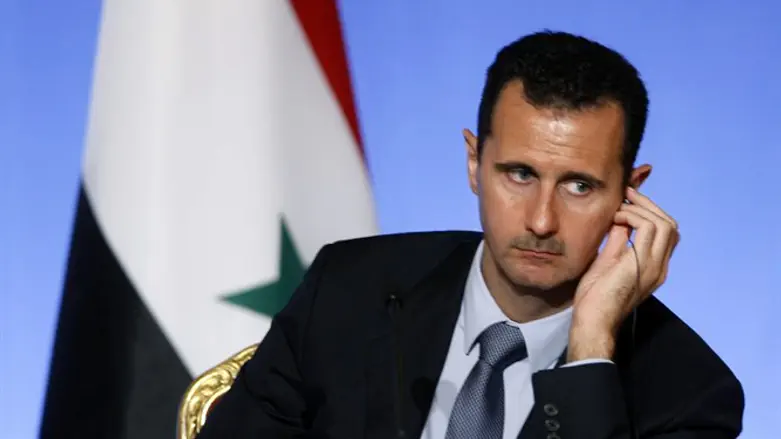
(AFP) - A yearlong investigation to determine who is behind deadly chemical attacks in Syria takes center stage at the United Nations this week when the panel presents its
much-awaited findings.
The Joint Investigative Mechanism (JIM) set up by the UN Security Council has been collecting evidence in nine cases of alleged noxious gas attacks on Syrian villages in 2014 and 2015.
Diplomats are hoping that the 24-member panel tasked with identifying those responsible will finally point the finger at President Bashar al-Assad's forces.
"I expect absolute clarity that there have been these chemical weapons attacks in Syria, and - to the extent that the evidence allows it - absolute clarity about who is responsible for each one," said British Ambassador Matthew Rycroft.
"We are very keen indeed to ensure full accountability. Whoever uses chemical weapons in Syria needs to be held accountable," he said.
French Deputy Ambassador Alexis Lamek said "this is a very important report" and stressed that the council will have to follow up on "whatever its findings will be."
The report will be presented on Wednesday to the council, which will then discuss the findings at a meeting on August 30.
The JIM has presented two reports to the council including an update in June in which it reported progress, but stressed that identifying the perpetrators hinged on gathering sufficient information.
The panel is looking into nine attacks on seven villages in the Hama, Idlib and Aleppo provinces.
The probe dates back to the April 2014 attack on the rebel-held village of Kafr Zita, followed by a string of alleged uses of noxious gas in Idlib province on the towns of Talmenes, Al-Tamana, Qmenas, Binnish and Sarmin.
Several people including children died in the attacks and dozens were hospitalized suffering from vomiting and shortness of breath, according to human rights groups that have documented witness accounts.
Blame could also be assigned to Islamic State militants suspected of using mustard gas on the town of Marea in Aleppo province on August 21 last year.
Chlorine barrel bombs
Most of the cases point to the alleged use of chlorine gas in barrel bombs dropped from helicopters.
The United States, Britain and France maintain that only the regime has helicopters, but Russia, Damascus' ally, insists that there is no concrete proof that Assad's forces carried out the attacks.
To build its case, the JIM has had full access to evidence gathered by the Organization for the Prohibition of Chemical Weapons (OPCW) which has sent fact-finding missions to Syria.
JIM investigators traveled to Syria twice this year, in March and May, to question government officials and interview witnesses.
If the panel concludes that the Assad regime was responsible for some of the chemical attacks, the Security Council would then decide whether to impose sanctions or possibly ask the International Criminal Court to take up the matter as a war crime.
Many diplomats say Russia appears unlikely to back such a move.
Paul Walker, a director at Green Cross International, a think tank founded by former Soviet leader Mikhail Gorbachev, said he believed Russia would not block efforts to punish those responsible for chemical weapons use.
"Everyone draws the line when it comes to chemical weapons use, even if they support President Bashar al-Assad," said Walker, an expert on the Chemical Weapons Convention (CWC).
"Our expectation is that they really will be able to point the finger at some entities such as the Syrian military, perhaps even certain divisions," he said.
Chlorine use as a weapon is banned under the CWC, which Syria joined in 2013, under pressure from Russia.
Russia worked with the United States to rid Syria of its chemical weapons stockpile following a sarin gas attack on a Damascus suburb in August 2013 that left 355 dead, according to the medical charity Doctors Without Borders (MSF).
